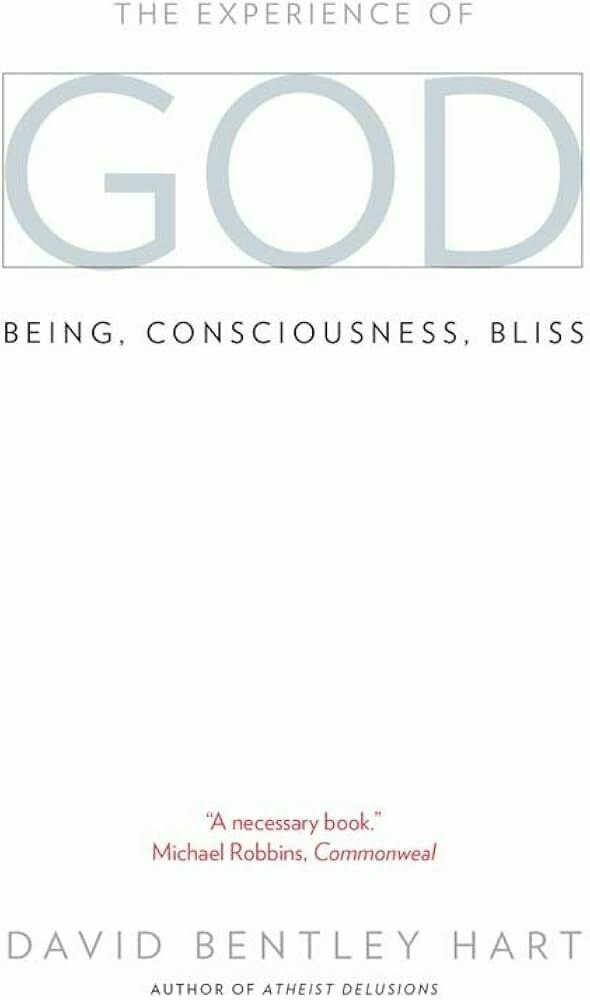Category: Longform
You are viewing all posts from this category, beginning with the most recent.
Marilynne Robinson on Community and Absence
Posting this quote from Marilynne Robinson here just so I have it at hand for later use:
To speak in the terms that are familiar to us all, there was a moment in which Jesus, as a man, a physical presence, left that supper at Emmaus. His leave-taking was a profound event for which the supper itself was precursor. Presence is a great mystery, and presence in absence, which Jesus promised and has epitomized, is, at a human scale, a great reality for all of us in the course of ordinary life.
I am persuaded for the moment that this is in fact the basis of community. I would say, for the moment, that community, at least community larger than the immediate family, consists very largely of imaginative love for people we do not know or whom we know very slightly.
In full context, she’s talking about community with fictional characters and authors here, but this rings so true to me in a world full of online communities.
Looking back or looking forward? Reading Ivan Illich up against Ilia Delio
A useful maxim for me over the years has been to find out who my favorite writers are reading, and start reading those authors. As I wrote previously, I’ve benefitted quite a lot recently from Chris E. W. Green’s podcast. One of the thinkers Green has been referencing frequently is Ivan Illich, an Austrian Catholic priest and thinker from the first part of the 20th century. So, off I went to learn about Ilich.
It appears that a digestible canonical form of Illich’s thought is in a wonderful CBC radio series titled ‘The Corruption of Christianity’ as presented by journalist David Cayley. I’m only through 3 of the 5 hour-long episodes so far, but it’s fascinating stuff. Illich contends that the movement to formally establish programs to do good, even (especially?) church-run programs, is a horrible corruption of the original Christian call, because the benevolence then ceases to be a voluntary act of love on the part of the individual believer.
Frequently through the first few episodes of the program, Illich argues that the early Christian view of certain acts was different than we understand today because those Christians had a different scientific view of the world. For example, he says the ancients thought of “the gaze” as an act where the human eye actually casts a ray out to the perceived object, by which the viewer and the viewed interact. With the advent of modern science, he says, we now think of the eye as a lens through which an image is received, and now we have a more passive interaction with the representation of the object rather than an active interaction with the object itself. And this represents a “corruption” of the ancient understanding.
This is really interesting for me to set in conversation with Ilia Delio’s writing. Delio approaches the question the other way around. Given what we now know, she says, about science and cosmology, how should we update our understanding of God and Christianity based on that modern science? Illich seemed to assume that the early church understanding was the perfect, uncorrupted one, and that we should work to get back to it. Delio takes a more progressive revelation view that encourages us to look forward rather than back. I have been helped a lot by Delio’s work over the past few years, so it’s interesting to run up against Illich and interrogate some of her premises. I haven’t reached conclusions yet but it’s some fascinating stuff to think on.


Recommended reading: Excavating AI
I hadn’t run across this until today when Michal Wozniak shared it on Mastodon, but it’s an excellent read: Excavating AI: The Politics of Images in Machine Learning Training Sets.
One of the “standard” image sets used for training models to do image recognition is ImageNet, originally published in 2009. It contains more than 14 million images which were categorized by humans via Amazon’s Mechanical Turk project. The challenge, of course, is that when you use humans to create the training data, all the implicit (and explicit) bias of the human trainers is trained right into the data.
[ImageNet] provides a powerful and important example of the complexities and dangers of human classification, and the sliding spectrum between supposedly unproblematic labels like “trumpeter” or “tennis player” to concepts like “spastic,” “mulatto,” or “redneck.” Regardless of the supposed neutrality of any particular category, the selection of images skews the meaning in ways that are gendered, racialized, ableist, and ageist. ImageNet is an object lesson, if you will, in what happens when people are categorized like objects. And this practice has only become more common in recent years, often inside the big AI companies, where there is no way for outsiders to see how images are being ordered and classified.
While I don’t think the current AI tech boom will sustain in the long term, certain applications are very useful and probably will stick around. As we employ systems that are trained, we must always interrogate the assumptions and biases that have gone into that training.
There is much at stake in the architecture and contents of the training sets used in AI. They can promote or discriminate, approve or reject, render visible or invisible, judge or enforce. And so we need to examine them—because they are already used to examine us—and to have a wider public discussion about their consequences, rather than keeping it within academic corridors. As training sets are increasingly part of our urban, legal, logistical, and commercial infrastructures, they have an important but underexamined role: the power to shape the world in their own images.
It’s worth reading the whole thing.
Recommended podcast: Chris E. W. Green's Speakeasy Theology
Lately I’ve really been enjoying Bishop Chris E. W. Green’s podcast called Speakeasy Theology. Green is a bishop in the Communion of Evangelical Episcopal Churches and Professor of Public Theology at Southeastern University in Lakeland, FL. Green’s background is Pentecostal, but his move into the CEEC has put him in an interesting place where he is deeply invested in the Episcopal tradition while still embracing a strong Spirit-filled embodiment of faith.

His podcast isn’t particularly fancy or polished. It does have theme music, but generally consists of Green in conversation with one or two others, delving into some aspect of theology and/or practice. I particularly appreciate his humble approach to these conversations. While many podcast hosts and theologians would work to make their own points and push their own agenda, he is very willing to just ask questions and let his guests provoke the conversation in the direction they want to go.
A couple recent episodes that stuck out to me: first, God Is More Exciting Than Anything with Dr. Jane Williams. Dr. Williams talks about loving theology, loving prayer, loving God, and serving the church. Green doesn’t do extensive introductions of his guests on the podcast, so as I listened all I gathered at the beginning is that Dr. Williams is a British professor of theology. As the discussion went on, Green asked some questions about advice on the life of a Bishop, and the impact on the Bishop’s family, and what a Bishop should prioritize, and as he listened to her advice with great esteem, I thought wait, I need to connect some dots here. So I Googled Dr. Jane Williams, and found that in addition to being a professor of theology, she’s been married for more than 40 years to Rowan Williams, the former Archbishop of Canterbury. (Lightbulb!) What stuck out to me about this interview, beside the wonderful conversation and counsel from Dr. Williams, was that she was presented (deservedly) entirely on her own authority and merit, with no reference to her husband. This felt like a beautiful and, sadly, remarkable display of respect by Dr. Green.
The second episode I want to recommend is titled The Difference is Doxological, Green’s conversation with Richard Beck. Beck is a professor of experimental psychology at Abilene Christian University and a long-time blogger. (I’ve read Beck for a long time and blogged about his thoughts frequently enough he has his own tag on my blog.) Beck’s specialty is the intersection between psychology and theology, and his discussion with Green is a wonderful hour wrestling with how we think about the acknowledged work of God in people’s lives vs. the work that God does through the common grace of psychological practice. Beck also talks about his own faith journey of deconstruction and rebuilding, giving his long-time readers like Green and me some good background for his blogging.
I’ve recommended Chris Green’s books here before, and I’m happy to recommend the podcast, too. It’s worth a listen.
You can become more holy by becoming more merciful
Fr. Matt Tebbe is one of my favorite writers at the moment. A former evangelical turned Episcopal priest, Matt has a keen eye for the systems at work in our world and a voice for calling them out clearly. The other day he turned his thoughts to God’s mercy:
You can approach God’s holiness in your sin because God’s holiness moves towards you first. Any suggestion that God can’t look upon you or is far from you or doesn’t want to be with you in your sin: what do we see in Christ?
In him the fullness of God was pleased to dwell. And Christ moves toward- not away- from sinners.
You can become more holy by becoming more merciful: with yourself and others.
In my previous evangelical life, it was always the other direction that was emphasized: God, in his (always his) holiness, is offended by you and your miserable, sinful, inept little self. When Jesus touched a sick person, they said, that sick person must’ve been miraculously healed an instant before Jesus hand actually reached them, because Jesus could never have broken the law by touching a sick person. (Such mental gymnastics!) Then I read Richard Beck say that Jesus was so full of life and health that of course he touched the sick person because Jesus’ life and health overwhelmed and pushed that sickness right out of them.
What a blessing to finally see God’s love and mercy and goodness in a restorative and healing way! And thanks Matt for reminding us of it.

Bryce Harper: Mentoring at 1B
Here’s a really lovely story on The Athletic about Phillies 1B Bryce Harper and his gentle efforts to mentor younger players, even those from opposing teams.
This is why Harper started talking more to opposing players.
“It’s being able to see the human element, as well,” Harper said. “You know how intense I am on the baseball field. I’m a very intense person. But talking to them gets you away from being so intense where it’s just overbearing.”
Over time, he’s become more accessible to his younger teammates. He has frequent talks with Alec Bohm about the mental side of hitting. He wants to be regarded as one of the best ever — and someone who cares.
“Obviously, I don’t want to help them when we’re playing against them,” Harper said. “So I think it’s that give and take. But, also, I’m not scared of other players having success. I don’t want them to have success against us. I don’t. But I never want them to not be confident in their ability.
“I want every single guy when they get to the big leagues to really have success and enjoy what they do. Enjoy each moment. Find gratitude in the moment. Find gratitude in the struggle. Find gratitude in the moment of having success. Enjoy the success. Enjoy the struggle, too.”
I’ve always been kind of ambivalent on Harper but I love this. One of the things that gives me hope for the future is seeing increased awareness and empathy across the younger generation. As they say, the kids are alright.
In Which Chris & Becky Visit Yale
When I was probably 15 years old, a nerdy homeschooled kid living in Texas, I was one day browsing a clothing rack at some cheap retailer - probably K-Mart or whatever the 1990’s equivalent of TJMaxx is today - and finding a royal blue t-shirt with the Yale Bulldogs logo on it. I knew Yale was a prestigious school but not much more than that. My nerdy self sort of liked the shirt, so I bought it and wore it regularly. Occasionally I would get questions on it. “Are you going to Yale?” No, I would reply, I just liked the shirt. In these pre-Internet (at least for us!) days, what I knew about Yale was basically what my folks had said: super-expensive, super-liberal. We were super-conservative and super-poor, so that was basically that. (I eventually attended a less-expensive, but still private, Christian university that was a lot closer to home.)
It was only much later in my life that I realized that the catalog price published for university tuition is like the “room rate” you see posted on the inside of hotel room doors - a huge number that frequently doesn’t reflect the reality of what you’ll have to put out of pocket. In retrospect, my story had all the hallmarks of a good case for a big Ivy League scholarship. A unique educational background. Fantastic test scores and grades. Superb writing skills. Reasonable extracurriculars. In reality’s timeline, I took the highest scholarship that LeTourneau gave for academics (only 20% of my yearly cost!), coupled it with a bunch of grants, and still paid off college loans for a decade afterward. I got a reasonably good education at LeTourneau, met my wife there, got a job, moved to Iowa, hadn’t thought about Yale in a long time.
Earlier this year my work team won a big corporate award, and earlier this week we got to travel to one of our big corporate headquarters sites in Connecticut to be honored at an awards banquet. We all got to bring a +1, so we had several spouses in attendance too. Becky came along and we lightly stretched the travel to make a mini-vacation of it. (As much as a 3-day, 2-night trip can be a vacation, I guess.)
One of those days while we were out sightseeing we drove out to New Haven and spent a couple hours walking around the Yale campus, visiting its museums, sticking our heads into the old buildings, and generally taking in the scene. We’ve walked around a few college campuses the past few years with the kids doing college tours themselves. Campuses have a unique energy, and at an elite school this is amplified. On one hand, I observed, it’s Yale - everybody there is special. That’s sort of table stakes for admission. On the other hand, it’s clear that all these “special” students are still really just 18-to-20-something college kids.
I wondered, as we walked down the shady streets and past the old stone buildings, how would 18-year-old Chris have handled Yale? It would’ve been a move halfway across the country, a country boy plopped down in an East coast city, a sheltered conservative religious kid at a secular institution. Would I have been the stubborn fundamentalist arguing with all my professors? The church kid who went to college and gave up his faith? Or could the sudden emergence from my evangelical bubble have accelerated my movement toward the more tolerant, liberal faith that I have finally come to in my 40s?
What-if’s like this are to a great extent pointless. There are no do-overs. I’m happy and content with where my path has taken me. I was probably better suited for engineering than humanities or law, anyway. But for one fall afternoon, it was fun to walk down the streets of New Haven and idly imagine other pasts.
The blessing of the dedicated civil servant
There’s a wonderful long-form profile on the Washington Post right now about Chris Mark, a man who eschewed an opportunity for a upper-class education to (literally) go work in the coal mines, and ended up revolutionizing coal mine safety. (That’s a gift link, so you can read it whether you’re a WaPo subscriber or not.) It’s a compelling story of a man, driven by some complex family dynamics, who found his niche and ended up in a government job where he could follow that interest in a direction that has resulted in countless miners’ lives saved over his career.
The value of experts in government driving regulation gets stated explicitly late in the piece:
Every now and then, however, Chris’s work slipped into public view. His coal mine roof rating was used all over the world and, in his own narrow circles, he was well known. In 2016 — the first year in recorded history that zero underground coal miners were killed by falling roofs — Chris landed in a public spat. He’d seen an article by an economic historian about the history of roof bolts in the Journal of Technology and Culture. The historian wanted to argue that roof bolts had taken 20 years to reduce fatality rates because it had taken 20 years for the coal mining industry to learn to use them. All by itself, the market had solved this worker safety problem! The government’s role, in his telling, was as a kind of gentle helpmate of industry. “It was kind of amazing,” said Chris. “What actually happened was the regulators were finally empowered to regulate. Regulators needed to be able to enforce. He elevated the role of technology. He minimized the role of regulators.”
Government functionaries can be an easy target for criticism, but this profile highlights the key and dedicated role that so many play in today’s society. In my own work I have encountered many Federal Aviation Administration employees who fit a similar profile. They found some particular niche interest related to flying, and they made it their life’s work to make it better and safer. It’s often a thankless job, and on a government pay scale that pales next to what they could likely make in industry.
(As a side note, this is part of what makes Trump’s Project 2025 intentions to politicize the civil service so terrifying: it would eliminate protections on just these dedicated experts to replace them with people who don’t know the topic but who donated to the right political cause. You wanna see the country (literally) crumble? Ditch all the regulatory experts like Chris Mark and replace them with Heritage Foundation interns.)
David Bentley Hart’s “The Experience of God”
With some of my recent reading getting my mental wheels turning about the nature of who God is, I figured it was a reasonable time to pull The Experience of God off my shelf. Right off the bat in the introduction, Hart promises what I was hoping for: “My intention is simply to offer a definition of the word ‘God’…” Unfortunately, 332 pages later, what David Bentley Hart has written isn’t at all simple, and approaches a definition of “God” only from an oblique angle.

Hart structures the book in three major parts. In the first, he clarifies that the “God” he is describing is the ultimate deity, the prime mover, from which all other creation and being have their source. It is here even in the beginning section that he starts taking aim at what appears to be his actual target with this book: the arguments of the popular atheists of the late 20th and early 21st century. (Richard Dawkins is a regular whipping boy.)
The second section (comprising the bulk of the book) is structured around three characteristics which Hart points to as the core aspects of God: being, consciousness, and bliss. Each of these (long) chapters seems less interested in enlightening the reader on who God is than in disputing with the atheists and materialists. God is the root of being, declares Hart, and anyone who says differently is just stupid. There is no materialist explanation for consciousness, says Hart, and the materialists who argue for an evolutionary reason and dismiss God are illogical and foolish. There is no evolutionary reason for a search for beauty, truth, and goodness, says Hart, and those who would try to argue thus are intellectually dishonest. So it goes.
Hart’s arguments are at his strongest when he’s arguing for something instead of railing against something. The first part of his chapter on bliss was particularly good in that regard. Sadly, most of the book goes the other direction.
It’s very hard to review Hart without taking his blustery style into consideration. He’s never met a big word he didn’t like. He makes huge sweeping assertions without any hint of supporting justification. He seems to think that just by declaring something “obviously” wrong that it’s obvious to everyone and doesn’t need explained. In doing so he dismissively waves away not just the weak sauce of people like Dawkins but also more substantive scientists and thinkers who deserve better. Hart falls almost into self-parody at the beginning of chapter six: “[W]e should not mistake every pronouncement made in an authoritative tone of voice for an established truth.” While aiming this at popular atheists, it’s an argument that is equally valid against Hart himself.
There’s an old joke about a preacher, who at one point in his sermon notes has written: “weak point, pound pulpit”. As a lay theologian and not much of a philosopher at all, my trouble with Hart’s book is that he does so much pulpit pounding it makes me suspect the strength of his points. Even in places where I find myself in agreement with his conclusions I have a hard time feeling like the book was beneficial.
Bullet Points for a very hot Monday Afternoon
- First day of school today for our two oldest kids… both at college so we won’t get chalkboard pics this year.
- Back to a full work week; the summer grind seems to set in here in late August. I think our European friends have the right idea, just taking most of August for vacation.
- A friend pinged yesterday to note it had been a year since a retreat we attended. That got me reflecting. It’s been quite a year.
- Turns out some combination of time, therapy, improved habits, loving family, and patience can produce good results, even in the midst of sadness and chaos.
- How am I old enough to have two kids in college?!?
- I’ve been umpiring rec league softball again this year and tonight is the end of our tournament. Forecast heat index: 115F. Oof.
- Once we get past Labor Day, life speeds up… a lot of business travel this fall.
- Related to a couple of these bullets: time to shop for a new suit. Think this time I’m gonna invest a little bit and not just buy whatever I can find cheapest off the rack at Kohl’s.
- I keep thinking that if my life gets too slow once the kids are out of the house, I could get certified and start umpiring high school softball. Feels like one of those things that you would have to jump into with both feet and make a fairly exclusive hobby during the summer.
- Picked a book up off the shelf for book club yesterday and had forgotten just how good that book is. Time for a re-read, maybe. I don’t re-read too often.
- If I stop and think a moment, I kinda wonder what things will look like a year from now when I look back on the (currently upcoming) year. Life is wild.